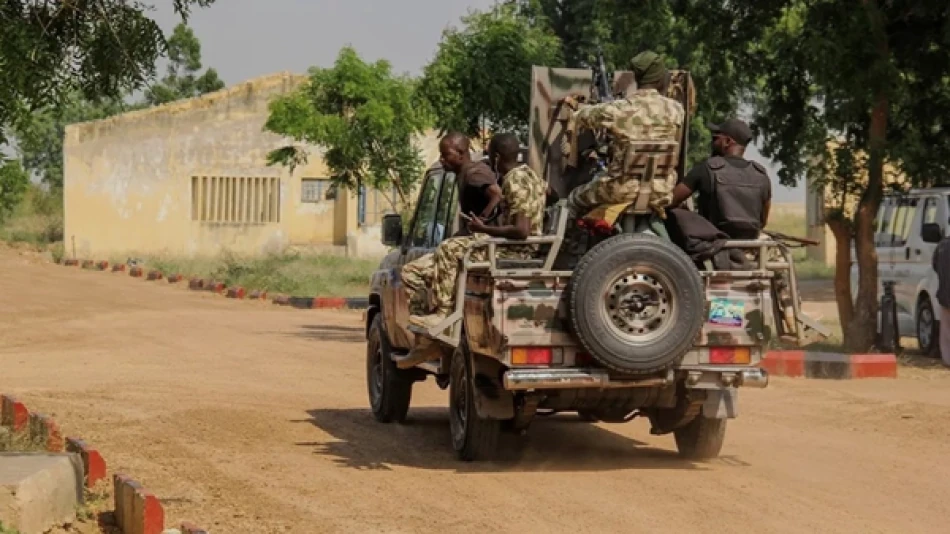
Deadly Attack Claims 60 Lives in Nigeria, Security Crisis Escalates
Nigeria's Border Security Crisis Deepens as 60 Civilians Killed in Latest Village Attack
At least 60 people were killed in a militant attack on a northeastern Nigerian village populated by civilians who had recently returned from a closed displacement camp, highlighting the persistent security vacuum that continues to plague Africa's most populous nation despite years of military intervention. The massacre underscores how Nigeria's border regions remain vulnerable to extremist violence, even as the government claims progress in its counterterrorism efforts.
The Daroul Jama Massacre
The attack occurred last Friday night in Daroul Jama village, strategically located along the Nigeria-Cameroon border. Local authorities confirmed that five Nigerian soldiers were among the casualties, suggesting the militants encountered military resistance but still managed to carry out the deadly assault on the civilian population.
The timing and target selection reveal a calculated strategy by the attackers. The village's residents had recently returned from a displacement camp that had been officially closed, likely as part of government efforts to demonstrate improved security conditions and encourage displaced populations to resume normal life.
A Decade-Long Security Nightmare
Northeastern Nigeria has been trapped in a cycle of violence for over a decade, primarily driven by Boko Haram and its various factions, along with the Islamic State West Africa Province (ISWAP). The region's porous borders with Cameroon, Niger, and Chad have created a complex security challenge that transcends national boundaries.
Military Campaigns Fall Short
Despite sustained military operations backed by regional and international support, including assistance from the United States, France, and neighboring countries through the Multinational Joint Task Force, militant groups continue to execute sporadic but devastating attacks. The persistence of such violence raises questions about the effectiveness of current counterterrorism strategies and the Nigerian military's capacity to secure remote border areas.
The Displacement Camp Closure Strategy Backfires
The attack on recently returned displaced persons exposes the risks inherent in Nigeria's policy of closing displacement camps before establishing adequate security guarantees. This approach, driven partly by the enormous cost of maintaining camps and political pressure to demonstrate progress, has repeatedly put vulnerable populations at risk.
Similar patterns have emerged across the Sahel region, where governments face pressure to show territorial control while lacking the resources to maintain effective security presence in remote areas. Mali, Burkina Faso, and Niger have experienced comparable challenges in protecting civilians who return to areas previously controlled by extremist groups.
Regional Implications and Border Security
The cross-border nature of this threat has created a regional security crisis that individual nations struggle to address independently. The Lake Chad Basin, where Nigeria, Cameroon, Niger, and Chad converge, has become a haven for militant groups who exploit jurisdictional gaps and weak state presence.
Unlike more successful counterterrorism efforts in countries like Colombia or Sri Lanka, where governments eventually established comprehensive territorial control, the Nigerian approach has focused primarily on military operations without sufficient emphasis on governance, development, and community protection in reclaimed areas.
Economic and Humanitarian Costs Mount
The continued violence imposes enormous economic costs on Nigeria, Africa's largest economy, diverting resources from development to security operations while disrupting agricultural production in a region crucial for food security. The humanitarian crisis has displaced over 2 million people, creating long-term challenges for regional stability.
For international partners and investors, the persistent insecurity in northeastern Nigeria signals the limitations of external military assistance without corresponding improvements in governance and local security capacity. This pattern has implications for similar interventions across the Sahel, where international forces are increasingly questioned about their effectiveness in creating lasting security improvements.
Most Viewed News

 Layla Al Mansoori
Layla Al Mansoori






